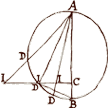This article needs additional citations for verification. (June 2020) |
Max-Planck-Institut für Wissenschaftsgeschichte | |
 | |
| Abbreviation | MPIWG |
|---|---|
| Formation | March 1994 |
| Type | Scientific research institute |
| Location | |
Executive director | Dagmar Schäfer |
Directors | Jürgen Renn, Etienne Benson and Dagmar Schäfer |
Key people | Lorraine Daston and Jürgen Renn, founding directors |
Parent organization | Max Planck Society |
| Website | www |
The Max Planck Institute for the History of Science (German: Max-Planck-Institut für Wissenschaftsgeschichte) is a scientific research institute founded in March 1994.[1] It is dedicated to addressing fundamental questions of the history of knowledge from the Neolithic era to the present day, and its researchers pursue a historical epistemology in their study of how new categories of thought, proof, and experience have emerged in interactions between the sciences and their ambient cultures.[2]
Organization
The MPIWG comprises three departments and several independent research groups.[3] As of August 2024, two departments are filled:
- "Knowledge Systems and Collective Life," directed by Etienne Benson[4]
- "Artifacts, Action, Knowledge," directed by Dagmar Schäfer
Hans-Jörg Rheinberger, who headed Department III from 1995 to 2014, and Lorraine Daston, who headed Department II from 1995 to 2019, remain at the MPIWG as emerita. Jürgen Renn headed the department "Structural Changes in Systems of Knowledge" from 1994 to 2023, when in moved on to Jena to be the Founding Director at the Max Planck Institute of Geoanthropology.
The Research Groups are:
- "Practices of Validation in the Biomedical Sciences," led by Lara Keuck[5]
- "China in the Global System of Science," led by Anna L. Ahlers[6]
- "Historical Epistemology of the Final Theory Program," led by Alexander Blum[7]
- "Experience in the Premodern Sciences of Soul & Body ca. 800–1650," led by Katja Krause[8]
In addition are groups and programs focusing on:
- Research IT and Digital Humanities
- Computational History of Science
The institute also comprises doctoral students, and research and teaching cooperations with other institutions worldwide.
Journalists in Residence
The institute has a Journalist-in-Residence program.[9]
References
- ^ "First Annual Report 1994". Max Planck Institute for the History of Science. Retrieved 16 June 2020.
- ^ "About the Institute". Max Planck Institute for the History of Science. Retrieved 16 June 2020.
- ^ "Research". Max Planck Institute for the History of Science. Retrieved 16 June 2020.
- ^ "Etienne Benson | MPIWG". www.mpiwg-berlin.mpg.de. Retrieved August 6, 2024.
- ^ "Lara Keuck | MPIWG". www.mpiwg-berlin.mpg.de. Retrieved August 6, 2024.
- ^ "Anna Lisa Ahlers | MPIWG". www.mpiwg-berlin.mpg.de. Retrieved August 6, 2024.
- ^ "Alexander Blum | MPIWG". www.mpiwg-berlin.mpg.de. Retrieved August 6, 2024.
- ^ https://www.mpiwg-berlin.mpg.de/users/kkrause [bare URL]
- ^ ‘Journalist in Residence’-Fellowship am MPIWG. JournalistenPreise.de – Das Portal für Journalistenpreise at the Wayback Machine (archived 2013-02-18).








